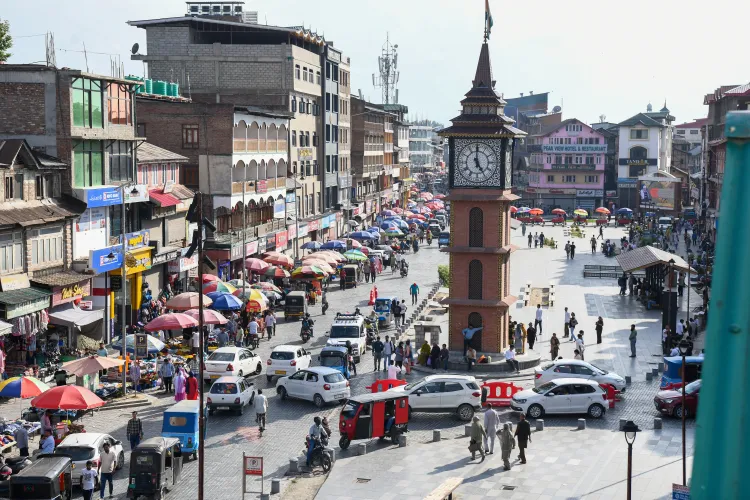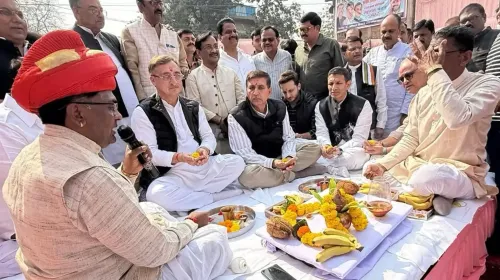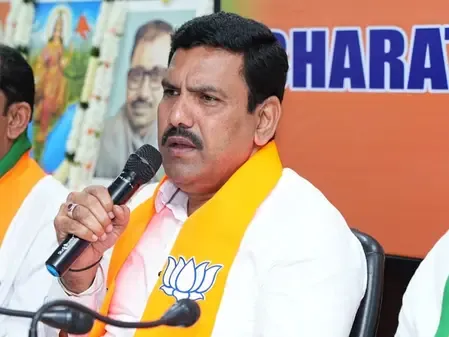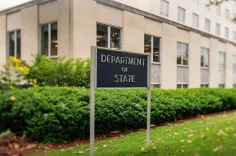Have Pakistan's Terror Tactics Failed to Intimidate Kashmiris Since Article 370's Abrogation?

Synopsis
Key Takeaways
- Transformation in Security: The security landscape in Kashmir has changed drastically post-abrogation.
- Rise in Tourism: Increased visitor numbers have boosted the local economy.
- Kashmiris' Resilience: Despite terror threats, the local population continues to thrive.
- Political Dynamics: Political leaders' statements often reflect personal agendas.
- Focus on Peace: The people of Kashmir are committed to peace and progress.
New Delhi, Aug 5 (NationPress) Six years ago, when the Modi government abrogated Article 370 and 35A, it finalized a Constitutional process that had been intentionally left incomplete for decades. Six years later, the government has taken further action that has showcased to the world that terror violence is no longer tolerated.
Operation Sindoor, which occurred a few months prior to the sixth anniversary of the abrogation, serves as a strong response to Pakistan and its state-sponsored terrorism.
Since August 5, 2019, the security situation in Kashmir has seen a remarkable shift. Incidents of stone-pelting, public protests, bomb explosions, and targeted shootings have significantly decreased. Attacks on security personnel have also diminished.
This enhanced security has led to a notable increase in tourism, with millions of visitors flocking to the union territory each year. This consistent influx has revitalized local industries such as handicrafts and horticulture, playing a crucial role in the economic recovery of the region.
The heightened sense of safety has also spurred a substantial rise in youth involvement in education, sports, competitive examinations, and entrepreneurial ventures.
While sporadic terrorist incidents still occur, the overall atmosphere—particularly in the Kashmir Valley—has become much more inviting for visitors. The local populace is increasingly focused on rebuilding and progressing beyond the fears and trauma of the pre-2019 period.
Nevertheless, following their failure to instill fear through targeted terror attacks, Pakistan resorted to a horrific assault on April 22, which claimed the lives of 25 innocent tourists identified as Hindus, alongside the murder of a local ponywalla. This brutal act aimed to undermine the morale of Kashmiris who had begun to embrace the peace initiatives. It was also a dangerous attempt to deter tourism and incite communal discord across the nation.
However, the resilience of Kashmiris has proven Pakistan wrong, as tourists have returned to the valley after an initial wave of shock. A significant moment was marked by the celebration of Zaeth-Ashtami by Kashmiri Hindus at the Kheer Bhawani Temple in Ganderbal, followed by the Amarnath Yatra, which saw participation from over four lakh pilgrims. This collective strength has conveyed a powerful message to Pakistan and its allies.
The era of terrorists operating freely in the valley, including Srinagar, has ended. Previously, militants found refuge not only near the Line of Control but also deep within civilian areas. There were numerous instances of locals harboring militants or assisting in their escape. That landscape has transformed significantly post-2019. Currently, most encounters occur in remote forests, where militants conceal themselves within vegetation or caves.
Since 2019, the Modi government has banned numerous organizations that fostered terrorism in Kashmir, aiding in the reduction of local recruitment into terror ranks. The majority of terrorist operatives are now sent from across the border in Pakistan.
Despite this progress, security challenges remain. Individuals vulnerable to religious propaganda can still be influenced by Pakistan-backed terror factions, which continue to conflate terrorism with jihad.
Recently, Farooq Abdullah, president of the National Conference and former Chief Minister, remarked that militancy in Jammu and Kashmir is ongoing and may never cease. Such comments underscore the real challenge—certain political leaders' doublespeak that seeks to maintain tensions for personal or political gain.
Yet, the people of Kashmir have voiced their aspirations: they seek peace, progress, and an influx of tourists to further build on the momentum created since August 5, 2019.
(Deepika Bhan can be contacted at deepika.b@ians.in)









